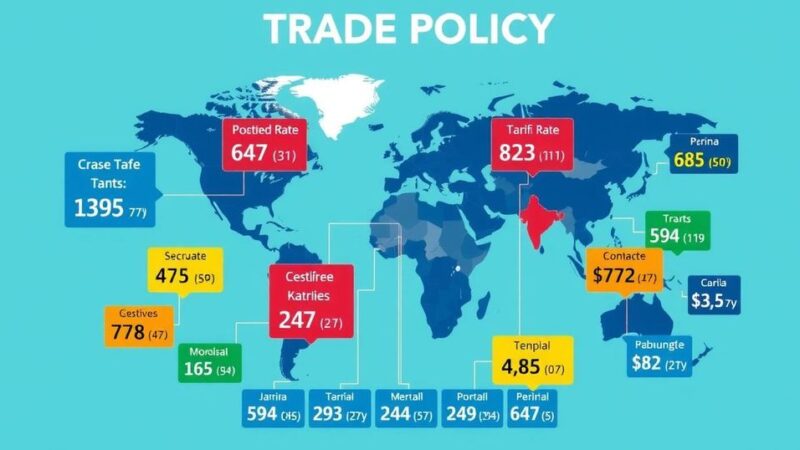In the first nine months of 2024, Nigeria spent $1.87 billion on food imports, a $235.11 million increase from 2023. The Central Bank of Nigeria reported significant monthly fluctuations in foreign exchange allocations, reflecting an overall rise in spending. This trend highlights the country’s continued dependence on imported food amidst persisting agricultural challenges.
According to the Central Bank of Nigeria (CBN), Nigeria spent $1.87 billion on food imports during the first nine months of 2024. This expenditure marks an increase of $235.11 million compared to the $1.64 billion spent in the same timeframe the previous year, reflecting a 14.37% rise in foreign exchange allocations for food imports to address local demand.
The CBN reports indicate significant fluctuations in monthly foreign exchange allocations for food imports throughout 2024. For instance, in January, allocations decreased by 33.08% from $245.69 million in 2023 to $164.43 million. Conversely, February witnessed a sharp rise, with allocations nearly doubling to $303.91 million from $163.57 million the prior year.
The latter half of 2024 experienced notable increases in forex spending on food imports. In July, allocations surged by 158.82%, rising to $149.91 million from $57.91 million in 2023. An even more significant increase occurred in August, with allocations reaching $275.04 million, up 188.51% from the previous year’s $95.33 million. Additionally, September saw a 74.13% increase, climbing to $208.68 million from $119.87 million in 2023.
Despite the fluctuations in allocations, Nigeria’s overall spending on food imports for 2024 reflected a considerable rise. This continued reliance on imported food highlights persisting challenges within Nigeria’s agricultural sector, even in light of several initiatives aimed at enhancing local agricultural production.
In summary, Nigeria’s food import expenditures rose significantly in 2024, amounting to $1.87 billion. While there were fluctuations in monthly foreign exchange allocations, the overarching trend indicates an increasing dependence on food imports, revealing ongoing issues within the agricultural sector despite efforts to augment local production.
Original Source: osundefender.com






